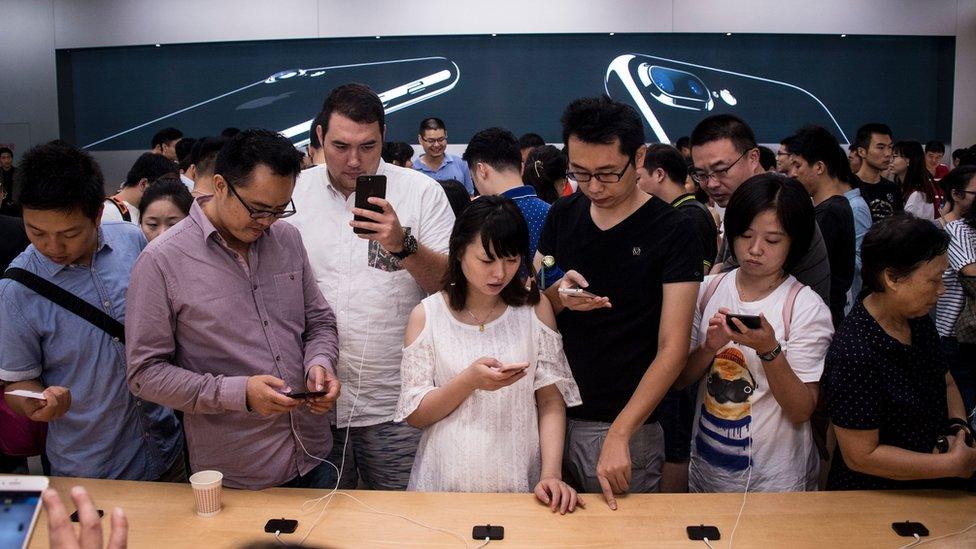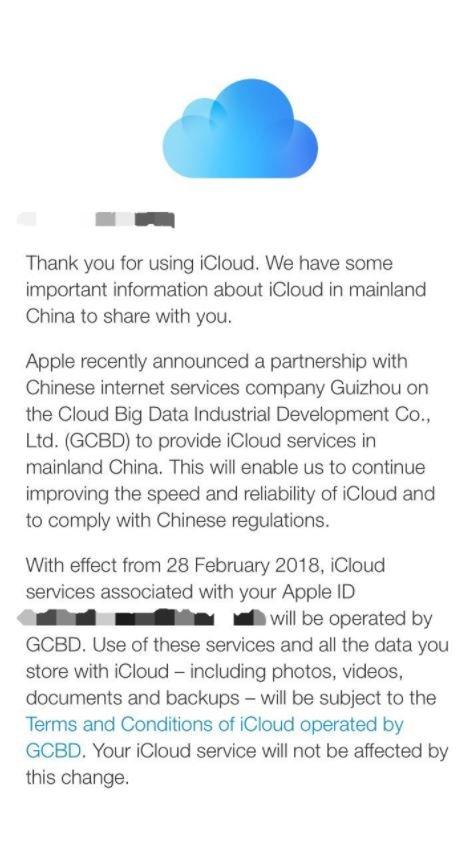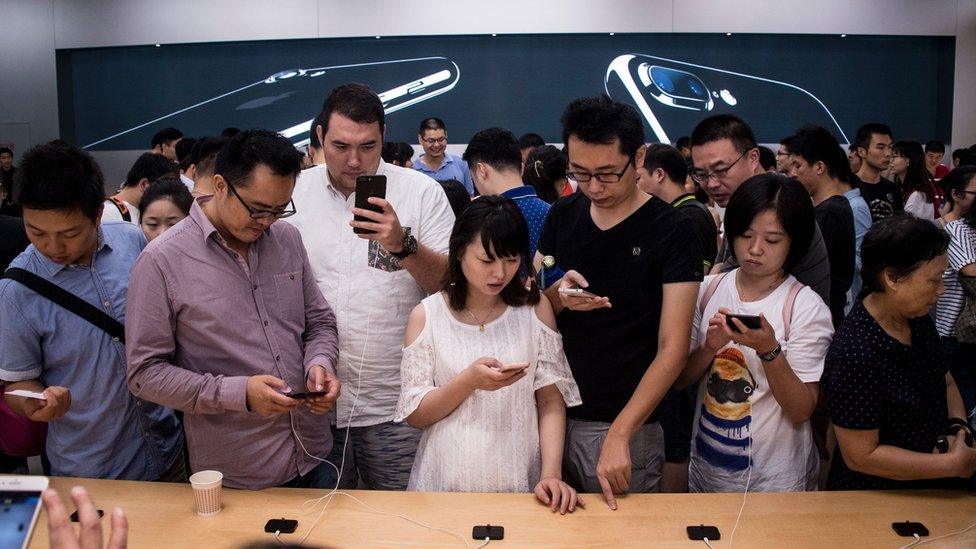Apple: Chinese firm to operate China iCloud accounts
- Published

Apple's iCloud services in mainland China will be operated by a Chinese company from next month, the tech giant has confirmed.
It has contacted customers based in China, advising them to examine new terms and conditions.
They include a clause that both Apple and the Chinese firm will have access to all data stored on iCloud.
Apple said it had made the move to comply with the country's cloud computing regulations.
iCloud accounts registered outside of China are not affected.
'Strong data privacy'
The Chinese cyber security rules, introduced in July last year, include a requirement for companies to store all data within China.
The firm, Guizhou on the Cloud Big Data (GCBD), is owned by the Guizhou provincial government in southern China.
Guizhou is where Apple opened a $1bn (£738m) data centre last year to meet the regulations.
iCloud data will be transferred from 28 February, Apple said. Customers living in mainland China who did not want to use iCloud operated by GCBD were given the option to terminate their account.

This message was sent to iCloud users in China
Apple said the "partnership" with GCBD would allow it to "improve the speed and reliability of our iCloud services products while also complying with newly passed regulations that cloud services be operated by Chinese companies".
It added that Apple had "strong data privacy and security protections in place and no backdoors will be created into any of our systems".
However, some on social media have said the step gives Beijing more opportunity to monitor its citizens and others living in the country.

Analysis: Kerry Allen, China media analyst, BBC Monitoring
Having domestic control over mainland Chinese iCloud accounts will delight the Beijing authorities, who have been pushing to oversee Apple's software presence in the country for months.
Government media have been exerting increased pressure on Apple to operate in line with China's strict media regulations, or else be forced out of the market.
In August 2017, Apple were heavily criticised by Beijing for threatening to remove applications by leading Chinese tech company Tencent, including the WhatsApp-like mobile messenger WeChat. Apple sought to secure a 30% commission on app updates through the Apple Store, rather than allow domestic software developers to have the freedom to update them in the background.
Influential media subsequently launched an attack on the company and called for a boycott of Apple products. Articles stressed the growing supremacy of Chinese technologies, and news websites published articles telling users they might be forced to choose between Apple or Tencent.
Social media users threw their support behind Tencent, saying they could not give up WeChat, which has more than a billion registered users.

Users typically use iCloud to store data such as documents and photographs.
The move comes after the company was criticised by some last year for removing Virtual Private Networks (VPNs) from its App Store in mainland China - software that allowed users to get round government restrictions on internet access.
Apple chief executive Tim Cook defended the action at the time, saying he would "rather not" be doing it, adding he hoped the restrictions would be "lessened" over time. He added the firm had to comply with Chinese regulations requiring licenses for VPN sellers.
- Published2 August 2017

- Published2 August 2017